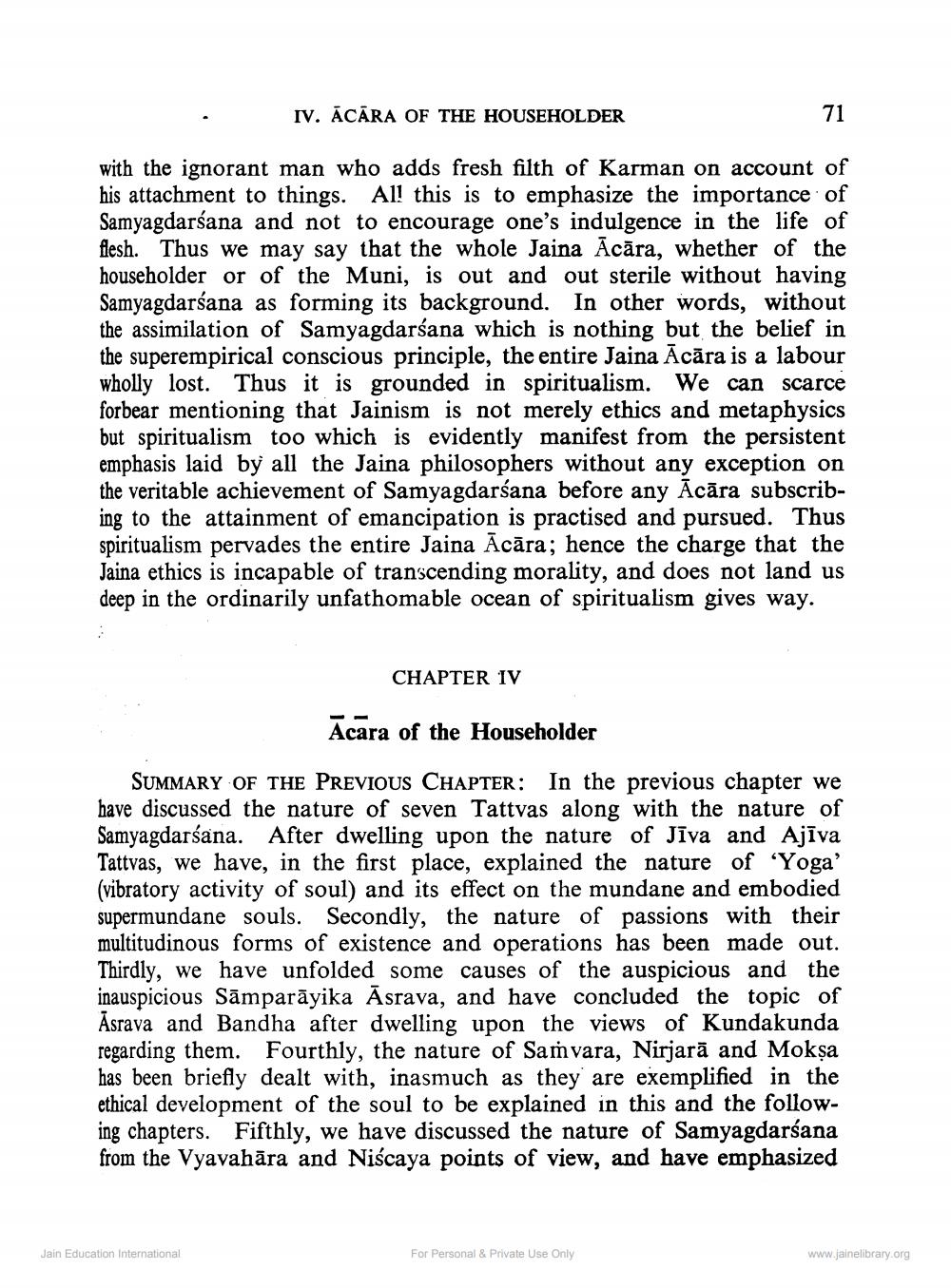________________
IV. ĀCĀRA OF THE HOUSEHOLDER
11
with the ignorant man who adds fresh filth of Karman on account of his attachment to things. All this is to emphasize the importance of Samyagdarśana and not to encourage one's indulgence in the life of flesh. Thus we may say that the whole Jaina Ācāra, whether of the householder or of the Muni, is out and out sterile without having Samyagdarśana as forming its background. In other words, without the assimilation of Samyagdarśana which is nothing but the belief in the superempirical conscious principle, the entire Jaina Ācāra is a labour wholly lost. Thus it is grounded in spiritualism. We can scarce forbear mentioning that Jainism is not merely ethics and metaphysics but spiritualism too which is evidently manifest from the persistent emphasis laid by all the Jaina philosophers without any exception on the veritable achievement of Samyagdarśana before any Ācāra subscribing to the attainment of emancipation is practised and pursued. Thus spiritualism pervades the entire Jaina Ācāra; hence the charge that the Jaina ethics is incapable of transcending morality, and does not land us deep in the ordinarily unfathomable ocean of spiritualism gives way.
CHAPTER IV
Acara of the Householder
SUMMARY OF THE PREVIOUS CHAPTER: In the previous chapter we have discussed the nature of seven Tattvas along with the nature of Samyagdarśana. After dwelling upon the nature of Jīva and Ajīva Tattvas, we have, in the first place, explained the nature of 'Yoga' (vibratory activity of soul) and its effect on the mundane and embodied supermundane souls. Secondly, the nature of passions with their multitudinous forms of existence and operations has been made out. Thirdly, we have unfolded some causes of the auspicious and the inauspicious Sāmparāyika Āsrava, and have concluded the topic of Asrava and Bandha after dwelling upon the views of Kundakunda regarding them. Fourthly, the nature of Samvara, Nirjarā and Mokşa has been briefly dealt with, inasmuch as they are exemplified in the ethical development of the soul to be explained in this and the follow
hapters. Fifthly, we have discussed the nature of Samyagdarśana from the Vyavahāra and Niscaya points of view, and have emphasized
Jain Education International
For Personal & Private Use Only
www.jainelibrary.org




